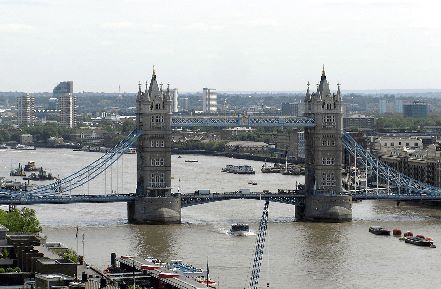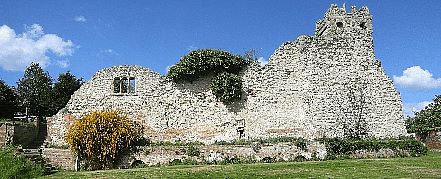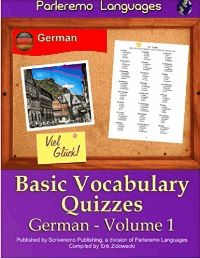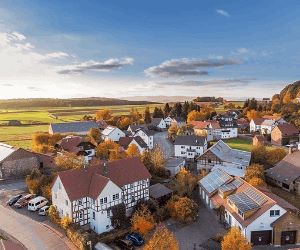Revisited
Stories In The Names Of Places

|
Another of the world's ancient and greatest cities, Constantinople, also took its name from a great ruler. In the days when the Roman Empire was beginning to decay, and new nations from the north began to pour into her lands, the emperor, Constantine the Great, the ruler who made Christianity the religion of the empire, chose a new capital instead of Rome. He loved Eastern magnificence and Eastern ways, and he chose for his new capital the old Greek colony of Byzantium, the beautiful city on the Golden Horn, which Constantine soon made into a new Rome, with churches and theatres and baths, like the old Rome. The new Rome was given a new name. Constantine had turned Byzantium into a new city, and it has ever since been known as Constantinople, or the "city of Constantine." We can nearly always tell from the names of places something of their history. If we think of the names of some of our English towns, we notice that many of them end in the same way. There are several whose names begin or end in don, like London itself. Many others end in caster or chester, ham, by, borough or burgh.  A view of the Tower Bridge in London We may be sure that most of the places whose names begin or end in don were already important places in the time before the Britons were conquered by the Romans. The Britons were divided into tribes, and lived in villages scattered over the land; but each tribe had its little fortress or stronghold, the "dun," as it was called, with walls and ditches round it, in which all the people of the tribe could take shelter if attacked by a strong enemy. And so the name of London takes us back to the time when this greatest city of the modern world, spreading into four counties, and as big as a county itself, with its marvellous buildings, old and new, and its immense traffic, was but a British fort into which scantily-clothed people fled from their huts at the approach of an enemy. But the British showed themselves wise enough in their choice of places to build their duns, which, as in the case of London, often became centres of new towns, which grew larger and larger through Roman times, and on into the Middle Ages and modern times. The great French fortress town of Verdun, which everybody has heard of because of its wonderful resistance to the German attacks in 1916, is also an old Celtic town with this Celtic ending to its name. It was already an important town when the Romans conquered Gaul, and it has played a notable part in history ever since. Its full name means "the fort on the water," just as Dundee (from Dun-tatha) probably meant "the fort on the Tay." By merely looking at a map of England, any one who knows anything of the Latin language can pick out many names which come from that language, and which must have been given in the days when the Romans had conquered Britain. The ending caster of so many names in the north of England, and chester in the Midlands, xeter in the west of England, and caer in Wales, all come from the same Latin word, castrum, which means a military camp or fortified place. So that we might guess, if we did not know, that at Lancaster, Doncaster, Manchester, Winchester, Exeter, and at the old capital of the famous King Arthur, Caerleon, there were some of those Roman camps which were dotted over England in the days when the Romans ruled the land. Here the Roman officers lived with their wives and families, and the Roman soldiers too, and here they built churches and theatres and baths, such as they were used to in their cities at home in Italy. Here, too, it was that many of the British nobles learned Roman ways of living and thinking; and from here the Roman priests and monks went out to teach the Britons that the religion of the Druids was false, and instruct them in the Christian religion. Another common Latin ending or beginning to the names of places was strat, stret, or street, and wherever we find this we may know that through these places ran some of the viæ stratæ, or great Roman roads which the Romans built in all the provinces of their great empire. There are many remains of these Roman roads still to be seen up and down England; but even where no trace remains, the direction of some, at least, of the great roads could be found from the names of the towns which were dotted along them. Among these towns are Stratford in Warwickshire, Chester-le-Street in Durham, Streatham, etc. Then, again, some of the towns with port and lynne as part of their names show us where the Romans had their ports and trading towns. The greatest city the world has ever seen was Rome, and many scholars have quarrelled about the meaning of that great name. It is interesting to see the different names which the English gave to the villages in which they dwelt when the Romans had left Britain, and these new tribes had won it for themselves. Nearly all towns ending in ham and ford, and burgh or borough, date from the first few hundred years after the English won Britain. Ham and ford merely meant "home," or "village." Thus Buckingham was the home of the Bockings, a village in which several families all related to each other, and bearing this name, lived. Of course the name did not change when later the village grew into a town. Buckingham is a very different place now from the little village in which the Bockings settled, each household having its house and yard, but dividing the common meadow and pasture land out between them each year. Wallingford was the home of the Wallings. Places whose names ended in ford were generally situated where a ford, or means of crossing a river or stream, had to be made. Oxford was in Old English Oxenford, or "ford of the oxen."  Castle ruins remains of Saint Nicholas College in Wallingford, where the Wallings lived Towns whose names end in borough are often very old, but not so old as some of those ending in ham and ford. There were burhs in the first days of the English Conquest, but generally they were only single fortified houses and not villages. We first hear of the more important burghs or boroughs in the last hundred years or so before the Norman Conquest. Edinburgh, which was at first an English town, is a very early example. Its name means "Edwin's borough or town," and it was so called because it was founded by Edwin, who was king of England from 617 to 633. The special point about boroughs was that they were really free towns. They had courts of justice of their own, and were free from the Hundred courts, the next court above them being the Shire court, ruled over by the sheriff. So we know that most of the towns whose names end in burgh or borough had for their early citizens men who loved freedom, and worked hard to win their own courts of justice. There are other endings to the names of towns which go back to the days before the Norman Conquest, but which are not really English. If a child were told to pick out on the map of England all the places whose names end in by or thwaite, he or she would find that most of them are in the eastern part of England. The reason for this might be guessed, perhaps, by a very thoughtful child. Both by and thwaite are Danish words, and they are found in the eastern parts of England, because it was in those parts that the Danes settled down when the great King Alfred forced them to make peace in the Treaty of Wallingford. After this, of course, the Danes lived in England for many years, settling down, and becoming part of the English people. Naturally they gave their own names to many villages and towns, and many of these remain to this day to remind us of this fierce race which helped to build up the English nation. The Normans did not make many changes in the names of places when they won England, and most of our place-names come down to us from Roman and old English times. The places have changed, but the names have not. But though towns and counties have had their names from those times, it is to be noticed that the names of our rivers and hills come down to us from Celtic times. To the Britons, living a more or less wild life, these things were of the greatest importance. There are several rivers in England with the name of Avon, and this is an old British name. The rivers Usk, Esk, and Ouse were all christened by the Britons, and all these names come from a British word meaning "water." Curiously enough, the name whisky comes from the same word. From all these different ways in which places have got their names we get glimpses of past history, and history helps us to understand the stories that these old names tell us. |
| Revisited - Stories In The Names Of Places | |||||
| Writer: | Elizabeth O'Neill | ||||
| Images: | |||||
| |||||
| Sources: | |||||
| |||||
All images are Copyright - CC BY-SA (Creative Commons Share Alike) by their respective owners, except for Petey, which is Public Domain (PD) or unless otherwise noted.
comments powered by Disqus



















